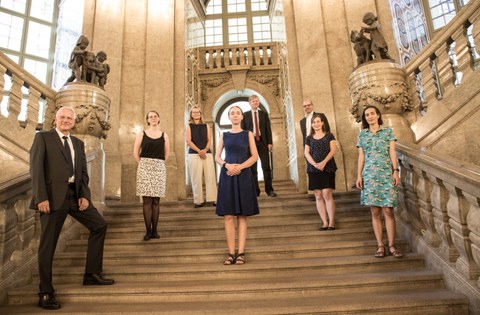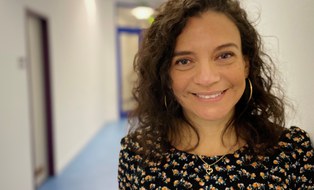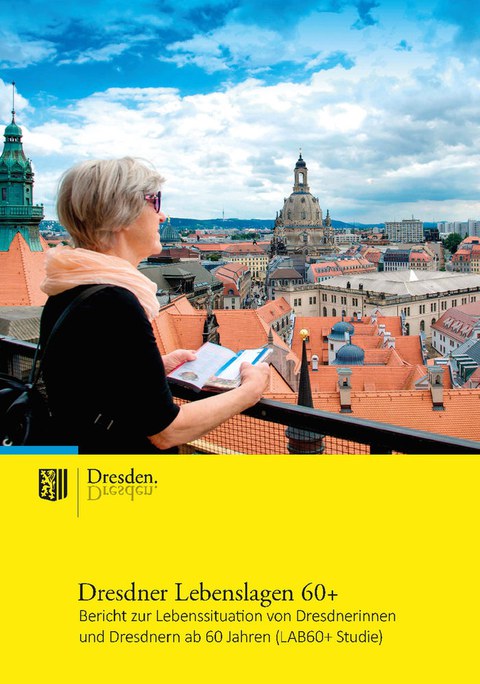Individual life, health and care situation of senior citizens in Dresden from the age of 60 (LAB60+)
Project description
The project Life Situation Report 60 plus (LAB60+) is funded by the City of Dresden (division of work, social affairs, health and housing) and deals with the analysis of current life situations, expectations for social participation and the health promotion of senior citizens in Dresden. The goals are, on the one hand, to derive recommendations for target group-specific measures for the preventative maintenance of social participation by older people and, on the other hand, to promote a self-determined life in your own home. Furthermore, the health and care infrastructure as well as care offers in the neighborhood should be able to be assessed with regard to care planning.
The study is a joint research project by Prof. Andreas Seidler (Institute and Polyclinic for Occupational and Social Medicine), Prof. Jürgen Wegge (Professorship for Industrial and Organizational Psychology) and Prof. Gesine Marquardt (Professorship for Social and Health Buildings), who represent the Center for Demography and Diversity (CDD) of the TU Dresden. At the Institute and Polyclinic for Occupational and Social Medicine (IPAS), the representative survey was coordinated in particular by Dr. Janice Hegewald and Dr. Karla Romero Starke.

Forscher:innen und städtische Unterstützer:innen des Projekts "LAB60+" im September 2020, von links: Herr Prof. Wegge, Frau Ihmels, Frau Prof. Marquardt, Frau Kaufmann, Herr Prof. Seidler, Herr Schäfer, Frau Beckert, Frau Hegewald.
Conduct
For LAB60+, from mid-February to May 2021, more than 6,000 residents of Dresden over the age of 60 and all care facilities in the state capital Dresden were surveyed by post, online, in person or by telephone using a questionnaire on their personal living situation, housing situation, mobility, social participation and health and care situation. The effects of the measures to contain the COVID-19 pandemic were also taken into account as part of the survey. The sample was randomly selected from the population register of the city of Dresden on the basis of the federal population law. 2,399 people took part in the survey. The response rate of 40 percent shows a great interest in social participation and the active willingness of the target group to participate. In addition, telephone interviews were conducted with 74 inpatient care facilities and 97 outpatient care services.
Thank you to everyone who took part in the survey!
Study results
- The vast majority of study participants (94 percent) live in apartments and houses with sometimes significant structural or spatial barriers. However, those affected are not sufficiently aware of counseling centers and funding offers with the help of which living space can be adapted to suit seniors or the disabled. The city is therefore planning campaigns to make housing advice and options for barrier-free design of living space better known.
- Accessibility in public space as well as senior-friendly open spaces and adequate lighting of footpaths are a central need of the elderly people of Dresden. The city administration will examine which measures need to be prioritised.
- The majority (63 percent) do not feel lonely and relatively well integrated into social groups. However, it is also a fact that about a third of the people surveyed feel somewhat severely lonely. The general well-being in Dresden is below the German average. During the corona pandemic, contacts were further reduced. It is therefore necessary to develop approaches and instruments that enable participation in cultural, social and societal life for all people over 60 years of age.
- Many seniors are overweight. Healthy eating is behind the recommendations, alcohol consumption is above the recommendations in one third, especially among younger people in the age group surveyed. The physical activity seems too little. Therefore, active healthy aging remains an important field of action for the city.
- The inpatient care facilities in Dresden are almost fully utilized (98 percent). The facilities describe the staffing situation as tense. Innovative care concepts and sufficient places for people in need of care with special care needs are necessary. Furthermore, the providers would like to see more skilled workers recruited. For this purpose, a discourse is planned in the "Dresden PflegeNetz" or with the service providers involved.
- The media use of the study participants is very heterogeneous. As expected, older people in particular tend to use traditional media. Younger people use digital information channels and communication platforms to a large extent. Therefore, information should also be published in a way that is appropriate for the addressee and digital offers should be further developed in a targeted manner so that they are better known and used.
- Many volunteer or want to volunteer into old age, for example by providing help in their neighborhood. Civic engagement supports the formation and maintenance of social networks. In the future, efforts should be made to expand offers that are tailored to target groups and close to home and to bring them together even better.
- Dresden's path to a senior-friendly infrastructure needs to be further developed. Many of the wishes of senior citizens are already anchored in the new specialist plan for work with senior citizens and care for the elderly and will be supplemented and deepened in the future. In order to make this possible, there should also be a regular survey in the future to continuously survey the needs of residents over the age of 60 and to adapt the current developments and subsidies accordingly.
Here you can download the complete final report.
Here you will find additional data and tables in the separate appendix.
Media reports
Dresdner Amtsblatt: This is how senior citizens in Dresden are doing (20.01.22)
Dresdner Neuste Nachrichten: How age-friendly is Dresden? (20.01.22)
Press release from the city of Dresden: This is how older people in Dresden are doing(19.01.22)
Radio Dresden: This is how older people in our city feel (19.01.22)
Sächsische Zeitung: Older people are only moderately well off in Dresden (19.02.22)
Further information
Here you will find the detailed study information (also as a PDF for download).
Here you will find the answers to frequently asked questions (FAQ) about LAB60+.
Contact person/project coordinator:
 © Karla Romero Starke
© Karla Romero Starke
Scientist
NameDr. rer. medic. Karla Romero Starke M.Sc. Chemie Ingenieur, M.Sc. Epidemiology
Send encrypted email via the SecureMail portal (for TUD external users only).

